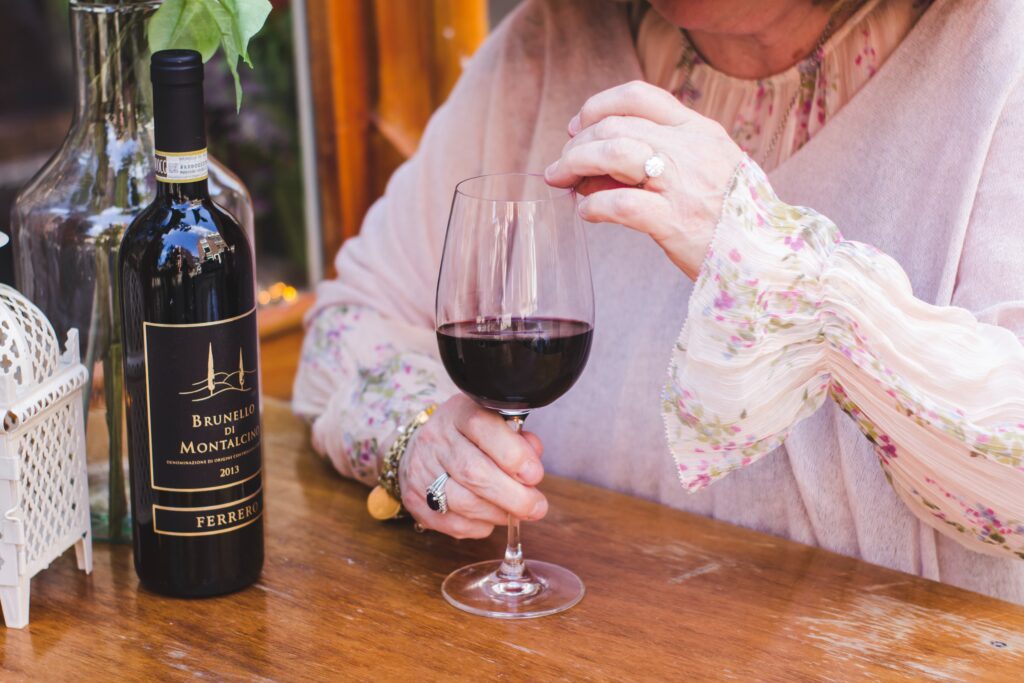Dealing with an elderly family member’s alcohol addiction presents a unique set of challenges.
Indeed, it may even be challenging to spot that your relative has an issue to begin with, as alcohol abuse can be a gradual thing and can sometimes be mistaken for aging symptoms or other health concerns.
But once you do identify that your loved one has a problem, there are several things you can do about it, such as the following nine.
With practical guidance, you can effectively address the delicate situation and support your family member throughout their journey to recovery.
1. Express Your Concerns
Firstly, express your concerns with your family members.
Draft a loving and constructive conversation with your elderly relative. Don’t accuse or blame them. Rather, express your concern and show how much you care about their well-being. You can then address the harmful effects of alcohol on their health better.
Use concrete examples if possible. For example, demonstrate instances where the person’s drinking habits have negatively impacted their life or yours.
2. Offer Support and Understanding
Understanding the root of their addiction is important.
If we consider factors like loneliness, boredom, or dealing with loss, which are common in older adults, engaging in empathic dialogue is essential. And never talk to an elderly person like they are an infant.
Remind your loved one that it’s okay to seek help and that you are there to support them through this journey.
3. Encourage Healthy Activities
Plan engaging activities that substitute for solitude or idle time which might tempt your elderly family member towards alcohol.
Maybe it’s going for a daily walk in the park, joining a weekly book club at the local library, or learning new hobbies online. Such activities can serve as positive distractions while also providing mental stimulation.

Photo by Louis Hansel on Unsplash
4. Consult Medical Professionals
Your family member’s doctor should be aware of the situation.
They can provide medication to manage withdrawal symptoms or recommend appropriate treatment options suitable for older adults, depending on the severity of the addiction.
5. Provide Reliable Resources
Investigate locally-available resources that might assist your alcohol-dependent loved one.
This could include support groups for seniors, community outreach programs, or informative literature about alcohol addiction in elderly people.
6. Encourage Your Relative to Engage with Expert Recovery Treatment
It’s probably a good idea to get experts who specialize in addiction recovery involved. For instance, your loved one could get help at a professional recovery treatment center.
A notable example is Fort Wayne Recovery, a highly regarded rehabilitation center that offers professional addiction counseling in Indiana.
Their knowledgeable staff can customize a recovery schedule, utilize treatments tailored to the specific needs of your loved one, and adjust treatment as necessary throughout their journey.
The expertise offered by such centers is invaluable, making the road to recovery smoother and more manageable.
Encourage your elderly relative to consider this assistance, reminding them that there’s no shame in accepting help when it’s needed.
7. Keep an Eye on Their Progress
Make a point of regularly checking in on your loved one’s progress. This will let them know that they aren’t going through this struggle alone. It also reinforces your role as their ally.
However, be careful not to become too controlling or intrusive, as this can create resistance and stress. Give them the necessary space they need.

8. Maintain Hope and Positivity
Prepare yourself for potential setbacks. They’re part of the journey. But they don’t define the destination.
Maintain a positive outlook and celebrate small victories along the way. These boosts of morale can have a profound effect on your loved one’s motivation to stay committed to their recovery journey.
Sharing inspirational success stories from others who have walked this path can also instill a sense of hope and determination in your elderly family members.
9. Take Care of Yourself as Well
While dedicating much energy and focus toward your family member battling alcohol addiction, it’s equally important to maintain your own emotional well-being too.
Your loved one’s struggles shouldn’t consume you entirely. So, engage in self-care activities, lean on supportive friends, or join support groups for families with similar experiences. In doing so, you can stay strong, both for yourself and for your loved one stepping into sobriety.
Final Thoughts
Remember that, throughout this whole process, you cannot force your loved one to quit drinking if they don’t want to. Change must come from within them.
However, with your unwavering support, loving guidance, and patience, your elderly family member can take healthier strides forward and take back control.

Leave a Reply